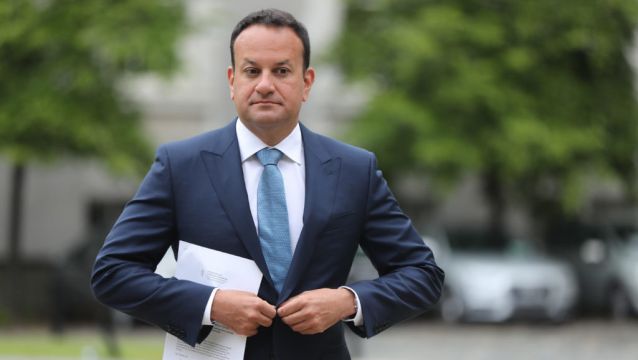Tánaiste Leo Varadkar has said that he would like to see an easing of the close contacts requirements which were causing problems for businesses and services as staff were required to isolate and were unavailable to work.
It made sense for people who were boosted, had no symptoms and had a negative antigen test to be allowed to return to work, he told RTÉ radio’s News at One.
“Essentially with any public health advice, you do have to balance if it would cause more harm than good,” he said.
The Government was relying on the chief medical officer to come up with a solution which he expected to be provided today and which would then be presented to the Cabinet tomorrow.
“I do think we need to relax the rules over close contacts, but we need to come up with a way of doing that that is safe.”
Mr Varadkar also confirmed that when restrictions end, financial supports will also end for businesses. However, he said there would be a grace period and no cliff edge.
According to the Tánaiste, there was “cautious grounds for optimism” in the midterm about the impact of the Omicron variant which appeared to be “less severe” probably because of the high levels of immunity in the country because of high vaccination levels.
The record levels of cases were not being translated into hospitalisations and deaths as had happened in previous waves, he explained.
But it was not the time “to drop guard”, the variant had not peaked yet, he warned.
Any easing of restrictions would have to be phased over a period of time, he added. It would not be done “in one fell swoop.”
If the Omicron wave peaked in the coming weeks then the Government would be open to the possibility of easing restrictions in February, he added.
“We're probably the only country in Europe where for two years we haven't been able to stand in a bar or go to your office if you want to.”
Mr Varadkar said he did not want Ireland to be an “outlier” on the issue for “the third summer” in a row.
When asked if he had concerns about the impact of a forthcoming case in relation to the alleged leaking of documents on his movement to the role of Taoiseach at the end of the year, Mr Varadkar said his focus was on his role as Minister for Enterprise and on creating and saving jobs. “That is almost a year away.”
M Varadkar said that exports had helped to “save the country” during the pandemic, and there had been a six percent increase in Irish exports last year - the highest levels of growth were in west and north-east. However, Covid meant “we have two economies at the moment.”
Impact on business
Staff shortages due to Covid-19 continue to be a problem across multiple sectors, as supermarkets, clothing shops and hair salons are among the businesses struggling to keep their doors open without adequate staff numbers.
Supermarkets Tesco, Supervalu and Aldi have all been forced to assess opening hours because of the number of staff isolating due to testing positive for the virus or being identified as a close contact of a confirmed case.
According to the Irish Examiner, Aldi has made "minimal changes" to opening hours so far, while Tesco and Supervalu confirmed some stores around the country have been forced to cut opening times.
Meanwhile, the Irish Hairdressers Federation has said the latest wave of infections has had a "devastating effect" on salon owners.
A spokesperson for the group said some salons reported four to eight staff as absent over the weekend.
The impact has led to calls for retail employers to supply staff with free antigen tests, with Mandate trade union, which has 30,000 retail members across shops such as Tesco, Dunnes Stores, Penneys and Supervalu, stating other staff are taking up the slack to ensure stores stay open.
The current rules for close contacts state the person must isolate for five or 10 days, depending on whether they have received their booster jab, or have tested positive for the virus in the past three months.
It is understood the Government has requested that public health experts re-examine these measures to determine whether they could be reduced in some instances, potentially easing the current staff shortages being felt by businesses, schools and other essential services, including transport sector and healthcare service.
-Additional reporting by Vivienne Clarke







